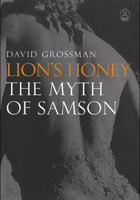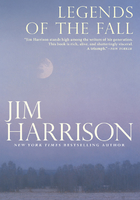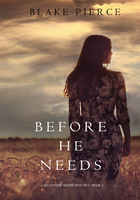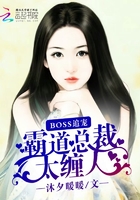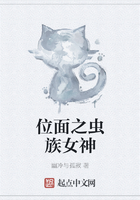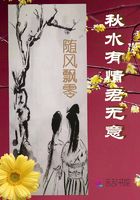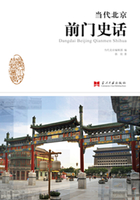I GUESS LOOKING AT IT, NOW, MY OLD man was cut out for a fat guy, one of those regular little roly fat guys you see around, but he sure never got that way, except a little toward the last, and then it wasn't his fault, he was riding over the jumps only and he could afford to carry plenty of weight then. I remember the way he'd pull on a rubber shirt over a couple of jerseys and a big sweat shirt over that, and get me to run with him in the forenoon in the hot sun. He'd have, maybe, taken a trial trip with one of Razzo's skins early in the morning after just getting in from Torino at four o'clock in the morning and beating it out to the stables in a cab and then with the dew all over everything and the sun just starting to get going, I'd help him pull off his boots and he'd get into a pair of sneakers and all these sweaters and we'd start out.
"Come on, kid," he'd say, stepping up and down on his toes in front of the jock's dressing room, "let's get moving."
Then we'd start off jogging around the infield once, maybe, with him ahead, running nice, and then turn out the gate and along one of those roads with all the trees along both sides of them that run out from San Siro. I'd go ahead of him when we hit the road and I could run pretty good and I'd look around and he'd be jogging easy just behind me and after a little while I'd look around again and he'd begun to sweat. Sweating heavy and he'd just be dogging it along with his eyes on my back, but when he'd catch me looking at him he'd grin and say, "Sweating plenty?" When my old man grinned, nobody could help but grin too. We'd keep right on running out toward the mountains and then my old man would yell, "Hey, Joe!" and I'd look back and he'd be sitting under a tree with a towel he'd had around his waist wrapped around his neck.
I'd come back and sit down beside him and he'd pull a rope out of his pocket and start skipping rope out in the sun with the sweat pouring off his face and him skipping rope out in the white dust with the rope going cloppetty, cloppetty, clop, clop, clop, and the sun hotter, and him working harder up and down a patch of the road. Say, it was a treat to see my old man skip rope, too. He could whirr it fast or lop it slow and fancy. Say, you ought to have seen wops look at us sometimes, when they'd come by, going into town walking along with big white steers hauling the cart. They sure looked as though they thought the old man was nuts. He'd start the rope whirring till they'd stop dead still and watch him, then give the steers a cluck and a poke with the goad and get going again.
When I'd sit watching him working out in the hot sun I sure felt fond of him. He sure was fun and he done his work so hard and he'd finish up with a regular whirring that'd drive the sweat out on his face like water and then sling the rope at the tree and come over and sit down with me and lean back against the tree with the towel and a sweater wrapped around his neck.
"Sure is hell keeping it down, Joe," he'd say and lean back and shut his eyes and breathe long and deep, "it ain't like when you're a kid." Then he'd get up and before he started to cool we'd jog along back to the stables. That's the way it was keeping down to weight. He was worried all the time. Most jocks can just about ride off all they want to. A jock loses about a kilo every time he rides, but my old man was sort of dried out and he couldn't keep down his kilos without all that running.
I remember once at San Siro, Regoli, a little wop, that was riding for Buzoni, came out across the paddock going to the bar for something cool; and flicking his boots with his whip, after he'd just weighed in and my old man had just weighed in too, and came out with the saddle under his arm looking red-faced and tired and too big for his silks and he stood there looking at young Regoli standing up to the outdoors bar, cool and kid-looking, and I said, "What's the matter, Dad?" cause I thought maybe Regoli had bumped him or something and he just looked at Regoli and said, "Oh, to hell with it," and went on to the dressing room.
Well, it would have been all right, maybe, if we'd stayed in Milan and ridden at Milan and Torino/cause if there ever were any easy courses, it's those two. "Pianola, Joe," my old man said when he dismounted in the winning stall after what the wops thought was a hell of a steeplechase. I asked him once. "This course rides itself. It's the pace you're going at, that makes riding the jumps dangerous, Joe. We ain't going any pace here, and they ain't really bad jumps either. But it's the pace always—not the jumps—that makes the trouble."
San Siro was the swellest course I'd ever seen but the old man said it was a dog's life. Going back and forth between Mirafiore and San Siro and riding just about every day in the week with a train ride every other night.
I was nuts about the horses, too. There's something about it, when they come out and go up the track to the post. Sort of dancy and tight looking with the jock keeping a tight hold on them and maybe easing off a little and letting them run a little going up. Then once they were at the barrier it got me worse than anything. Especially at San Siro with that big green infield and the mountains way off and the fat wop starter with his big whip and the jocks fiddling them around and then the barrier snapping up and that bell going off and them all getting off in a bunch and then commencing to string out. You know the way a bunch of skins gets off. If you're up in the stand with a pair of glasses all you see is them plunging off and then that bell goes off and it seems like it rings for a thousand years and then they come sweeping round the turn. There wasn't ever anything like it for me.
But my old man said one day, in the dressing room, when he was getting into his street clothes, "None of these things are horses, Joe. They'd kill that bunch of skates for their hides and hoofs up at Paris." That was the day he'd won the Premio Commercio with Lantorna shooting her out of the field the last hundred meters like pulling a cork out of a bottle.
It was right after the Premio Commercio that we pulled out and left Italy. My old man and Holbrook and a fat wop in a straw hat that kept wiping his face with a handkerchief were having an argument at a table in the Galleria. They were all talking French and the two of them was after my old man about something. Finally he didn't say anything any more but just sat there and looked at Holbrook, and the two of them kept after him, first one talking and then the other, and the fat wop always butting in on Holbrook.
"You go out and buy me a Sportsman, will you, Joe?" my old man said, and handed me a couple of soldi without looking away from Holbrook.
So I went out of the Galleria and walked over to in front of the Scala and bought a paper, and came back and stood a little way away because I didn't want to butt in and my old man was sitting back in his chair looking down at his coffee and fooling with a spoon and Holbrook and the big wop were standing and the big wop was wiping his face and shaking his head. And I came up and my old man acted just as though the two of them weren't standing there and said, "Want an ice, Joe?" Holbrook looked down at my old man and said slow and careful, "You son of a bitch," and he and the fat wop went out through the tables.
My old man sat there and son of smiled at me, but his face was white and he looked sick as hell and I was scared and felt sick inside because I knew something had happened and I didn't see how anybody could call my old man a son of a bitch, and get away with it. My old man opened up the Sportsman and studied the handicaps for a while and then he said, "You got to take a lot of things in this world, Joe." And three days later we left Milan for good on the Turin train for Paris, after an auction sale out in front of Turner's stables of everything we couldn't get into a trunk and a suit case.
We got into Paris early in the morning in a long, dirty station the old man told me was the Gare de Lyon. Paris was an awful big town after Milan. Seems like in Milan everybody is going somewhere and all the trams run somewhere and there ain't any sort of a mix-up, but Paris is all balled up and they never do straighten it out. I got to like it, though, part of it, anyway, and say, it's got the best race courses in the world. Seems as though that were the thing that keeps it all going and about the only thing you can figure on is that every day the buses will be going out to whatever track they're running at, going right out through everything to the track. I never really got to know Paris well, because I just came in about once or twice a week with the old man from Maisons and he always sat at the Café de la Paix on the Opera side with the rest of the gang from Maisons and I guess that's one of the busiest parts of the town. But, say, it is funny that a big town like Paris wouldn't have a Galleria, isn't it?
Well, we went out to live at Maisons-Lafitte, where just about everybody lives except the gang at Chantilly, with a Mrs. Meyers that runs a boarding house. Maisons is about the swellest place to live I've ever seen in all my life. The town ain't so much, but there's a lake and a swell forest that we used to go off bumming in all day, a couple of us kids, and my old man made me a sling shot and we got a lot of things with it but the best one was a magpie. Young Dick Atkinson shot a rabbit with it one day and we put it under a tree and were all sitting around and Dick had some cigarettes and all of a sudden the rabbit jumped up and beat it into the brush and we chased it but we couldn't find it. Gee, we had fun at Maisons. Mrs. Meyers used to give me lunch in the morning and I'd be gone all day. I learned to talk French quick. It's an easy language.
As soon as we got to Maisons, my old man wrote to Milan for his license and he was pretty worried till it came. He used to sit around the Café de Paris in Maisons with the gang, there were lots of guys he'd known when he rode up at Paris, before the war, lived at Maisons, and there's a lot of time to sit around because the work around a racing stable, for the jocks, that is, is all cleaned up by nine o'clock in the morning. They take the first bunch of skins out to gallop them at 5:30 in the morning and they work the second lot at 8 o'clock. That means getting up early all right and going to bed early, too. If a jock's riding for somebody too, he can't go boozing around because the trainer always has an eye on him if he's a kid and if he ain't a kid he's always got an eye on himself. So mostly if a jock ain't working he sits around the Café de Paris with the gang and they can all sit around about two or three hours in front of some drink like a vermouth and seltz and they talk and tell stories and shoot pool and it's sort of like a club or the Galleria in Milan. Only it ain't really like the Galleria because there everybody is going by all the time and there's everybody around at the tables.
Well, my old man got his license all right. They sent it through to him without a word and he rode a couple of times. Amiens, up country and that sort of thing, but he didn't seem to get any engagement. Everybody liked him and whenever I'd come into the Café in the forenoon I'd find somebody drinking with him because my old man wasn't tight like most of these jockeys that have got the first dollar they made riding at the World's Fair in St. Louis in nineteen ought four. That's what my old man would say when he'd kid George Burns. But it seemed like everybody steered clear of giving my old man any mounts.
We went out to wherever they were runnning every day with the car from Maisons and that was the most fun of all. I was glad when the horses came back from Deauville and the summer. Even though it meant no more bumming in the woods,'cause then we'd ride to Enghien or Tremblay or St. Cloud and watch them from the trainers' and jockeys' stand. I sure learned about racing from going out with that gang and the fun of it was going every day.
I remember once out at St. Cloud. It was a big two hundred thousand franc race with seven entries and Kzar a big favorite. I went around to the paddock to see the horses with my old man and you never saw such horses. This Kzar is a great big yellow horse that looks like just nothing but run. I never saw such a horse. He was being led around the paddocks with his head down and when he went by me I felt all hollow inside he was so beautiful. There never was such a wonderful, lean, running built horse. And he went around the paddock putting his feet just so and quiet and careful and moving easy like he knew just what he had to do and not jerking and standing up on his legs and getting wild eyed like you see these selling platers with a shot of dope in them. The crowd was so thick I couldn't see him again except just his legs going by and some yellow and my old man started out through the crowd and I followed him over to the jock's dressing room back in the trees and there was a big crowd around there, too, but the man at the door in a derby nodded to my old man and we got in and everybody was sitting around and getting dressed and pulling shirts over their heads and pulling boots on and it all smelled hot and sweaty and linimenty and outside was the crowd looking in.
The old man went over and sat down beside George Gardner that was getting into his pants and said, "What's the dope, George?" just in an ordinary tone of voice 'cause there ain't any use him feeling around because George either can tell him or he can't tell him.
"He won't win," George says very low, leaning over and buttoning the bottoms of his breeches.
"Who will?" my old man says, leaning over close so nobody can hear.
"Kircubbin," George says, "and if he does, save me a couple of tickets."
My old man says something in a regular voice to George and George says, "Don't ever bet on anything I tell you," kidding like, and we beat it out and through all the crowd that was looking in, over to the 100 franc mutuel machine. But I knew something big was up because George is Kzar's jockey. On the way he gets one of the yellow odds-sheets with the starting prices on and Kzar is only paying 5 for 10, Cefisidote is next at 3 to 1 and fifth down the list this Kircubbin at 8 to 1. My old man bets five thousand on Kircubbin to win and puts on a thousand to place and we went around back of the grandstand to go up the stairs and get a place to watch the race.
We were jammed in tight and first a man in a long coat with a gray tall hat and a whip folded up in his hand came out and then one after another the horses, with the jocks up and a stable boy holding the bridle on each side and walking along, followed the old guy. That big yellow horse Kzar came first. He didn't look so big when you first looked at him until you saw the length of his legs and the whole way he's built and the way he moves. Gosh, I never saw such a horse. George Gardner was riding him and they moved along slow, back of the old guy in the gray tall hat that walked along like he was a ring master in a circus. Back of Kzar, moving along smooth and yellow in the sun, was a good looking black with a nice head with Tommy Archibald riding him; and after the black was a string of five more horses all moving along slow in a procession past the grandstand and the pesage. My old man said the black was Kircubbin and I took a good look at him and he was a nice-looking horse, all right, but nothing like Kzar.
Everybody cheered Kzar when he went by and he sure was one swell-looking horse. The procession of them went around on the other side past the pelouse and then back up to the near end of the course and the circus master had the stable boys turn them loose one after another so they could gallop by the stands on their way up to the post and let everybody have a good look at them. They weren't at the post hardly any time at all when the gong started and you could see them way off across the infield all in a bunch starting on the first swing like a lot of little toy horses. I was watching them through the glasses and Kzar was running well back, with one of the bays making the pace. They swept down and around and came pounding past and Kzar was way back when they passed us and this Kircubbin horse in front and going smooth. Gee, it's awful when they go by you and then you have to watch them go farther away and get smaller and smaller and then all bunched up on the turns and then come around towards into the stretch and you feel like swearing and god-damming worse and worse. Finally they made the last turn and came into the straightaway with this Kircubbin horse way out in front. Everybody was looking funny and saying "Kzar" in sort of a sick way and them pounding nearer down the stretch, and then something came out of the pack right into my glasses like a horse-headed yellow streak and everybody began to yell "Kzar" as though they were crazy. Kzar came on faster than I'd ever seen anything in my life and pulled up on Kircubbin that was going fast as any black horse could go with the jock flogging hell out of him with the gad and they were right dead neck and neck for a second but Kzar seemed going about twice as fast with those great jumps and that head out—but it was while they were neck and neck that they passed the winning post and when the numbers went up in the slots the first one was 2 and that meant that Kircubbin had won.
I felt all trembly and funny inside, and then we were all jammed in with the people going downstairs to stand in front of the board where they'd post what Kircubbin paid. Honest, watching the race I'd forgot how much my old man had bet on Kircubbin. I'd wanted Kzar to win so damned bad. But now it was all over it was swell to know we had the winner.
"Wasn't it a swell race. Dad?" I said to him.
He looked at me sort of funny with his derby on the back of his head. "George Gardner's a swell jockey, all right," he said. "It sure took a great jock to keep that Kzar horse from winning."
Of course I knew it was funny all the time. But my old man saying that right out like that sure took the kick all out of it for me and I didn't get the real kick back again ever, even when they posted the numbers upon the board and the bell rang to pay off and we saw that Kircubbin paid 67.50 for 10. All round people were saying, "Poor Kzar! Poor Kzar!" And I thought, I wish I were a jockey and could have rode him instead of that son of a bitch. And that was funny, thinking of George Gardner as a son of a bitch because I'd always liked him and besides he'd given us the winner, but I guess that's what he is, all right.
My old man had a big lot of money after that race and he took to coming into Paris oftener. If they raced at Tremblay he'd have them drop him in town on their way back to Maisons and he and I'd sit out in front of the Café de la Paix and watch the people go by. It's funny sitting there. There's streams of people going by and all sorts of guys come up and want to sell you things, and I loved to sit there with my old man. That was when we'd have the most fun. Guys would come by selling funny rabbits that jumped if you squeezed a bulb and they'd come up to us and my old man would kid with them. He could talk French just like English and all those kind of guys knew him 'cause you can always tell a jockey—and then we always sat at the same table and they got used to seeing us there. There were guys selling matrimonial papers and girls selling rubber eggs that when you squeezed them a rooster came out of them and one old wormy-looking guy that went by with post-cards of Paris, showing them to everybody, and, of course, nobody ever bought any, and then he would come back and show the under side of the pack and they would all be smutty postcards and lots of people would dig down and buy them.
Gee, I remember the funny people that used to go by. Girls around supper time looking for somebody to take them out to eat and they'd speak to my old man and he'd make some joke at them in French and they'd pat me on the head and go on. Once there was an American woman sitting with her kid daughter at the next table to us and they were both eating ices and I kept looking at the girl and she was awfully good looking and I smiled at her and she smiled at me but that was all that ever came of it because I looked for her mother and her every day and I made up ways that I was going to speak to her and I wondered if I got to know her if her mother would let me take her out to Auteuil or Tremblay but I never saw either of them again. Anyway, I guess it wouldn't have been any good, anyway, because looking back on it I remember the way I thought out would be best to speak to her was to say, "Pardon me, but perhaps I can give you a winner at Enghien today?" and, after all, maybe she would have thought I was a tout instead of really trying to give her a winner.
We'd sit at the Café de la Paix, my old man and me, and we had a big drag with the waiter because my old man drank whisky and it cost five francs, and that meant a good tip when the saucers were counted up. My old man was drinking more than I'd ever seen him, but he wasn't riding at all now and besides he said that whisky kept his weight down. But I noticed he was putting it on, all right, just the same. He'd busted away from his old gang out at Maisons and seemed to like just sitting around on the boulevard with me. But he was dropping money every day at the track. He'd feel sort of doleful after the last race, if he'd lost on the day, until we'd get to our table and he'd have his first whisky and then he'd be fine.
He'd be reading the Paris-Sport and he'd look over at me and say, "Where's your girl, Joe?" to kid me on account I had told him about the girl that day at the next table. And I'd get red, but I liked being kidded about her. It gave me a good feeling. "Keep your eye peeled for her, Joe," he'd say, "she'll be back."
He'd ask me questions about things and some of the things I'd say he'd laugh. And then he'd get started talking about things. About riding down in Egypt, or at St. Moritz on the ice before my mother died, and about during the war when they had regular races down in the south of France without any purses, or betting or crowd or anything just to keep the breed up. Regular races with the jocks riding hell out of the horses. Gee, I could listen to my old man talk by the hour, especially when he'd had a couple or so of drinks. He'd tell me about when he was a boy in Kentucky and going coon hunting, and the old days in the States before everything went on the bum there. And he'd say, "Joe, when we've got a decent stake, you're going back there to the States and go to school."
"What've I got to go back there to go to school for when everything's on the bum there?" I'd ask him.
"That's different," he'd say and get the waiter over and pay the pile of saucers and we'd get a taxi to the Gare St. Lazare and get on the train out to Maisons.
One day at Auteuil, after a selling steeplechase, my old man bought in the winner for 30,000 francs. He had to bid a little to get him but the stable let the horse go finally and my old man had his permit and his colors in a week. Gee, I felt proud when my old man was an owner. He fixed it up for stable space with Charles Drake and cut out coming in to Paris, and started his running and sweating out again, and him and I were the whole stable gang. Our horse's name was Gilford, he was Irish bred and a nice, sweet jumper. My old man figured that training him and riding him, himself, he was a good investment. I was proud of everything and I thought Gilford was as good a horse as Kzar. He was a good, solid jumper, a bay, with plenty of speed on the flat, if you asked him for it, and he was a nice-looking horse, too.
Gee, I was fond of him. The first time he started with my old man up, he finished third in a 2500 meter hurdle race and when my old man got off him, all sweating and happy in the place stall, and went in to weigh, I felt as proud of him as though it was the first race he'd ever placed in. You see, when a guy ain't been riding for a long time, you can't make yourself really believe that he has ever rode. The whole thing was different now, 'cause down in Milan, even big races never seemed to make any difference to my old man, if he won he wasn't ever excited or anything, and now it was so I couldn't hardly sleep the night before a race and I knew my old man was excited, too, even if he didn't show it. Riding for yourself makes an awful difference.
Second time Gilford and my old man started, was a rainy Sunday at Auteuil, in the Prix du Marat, a 4500 meter steeplechase. As soon as he'd gone out I beat it up in the stand with the new glasses my old man had bought for me to watch them. They started way over at the far end of the course and there was some trouble at the barrier. Something with goggle blinders on was making a great fuss and rearing around and busted the barrier once, but I could see my old man in our black jacket, with a white cross and a black cap, sitting up on Gilford, and patting him with his hand. Then they were off in a jump and out of sight behind the trees and the gong going for dear life and the pari-mutuel wickets rattling down. Gosh, I was so excited, I was afraid to look at them, but I fixed the glasses on the place where they would come out back of the trees and then out they came with the old black jacket going third and they all sailing over the jump like birds. Then they went out of sight again and then they came pounding out and down the hill and all going nice and sweet and easy and taking the fence smooth in a bunch, and moving away from us all solid. Looked as though you could walk across on their backs they were all so bunched and going so smooth. Then they bellied over the big double Bullfinch and something came down. I couldn't see who it was, but in a minute the horse was up and galloping free and the field, all bunched still, sweeping around the long left turn into the straightaway. They jumped the stone wall and came jammed down the stretch toward the big water-jump right in front of the stands. I saw them coming and hollered at my old man as he went by, and he was leading by about a length and riding way out, and light as a monkey, and they were racing for the water-jump. They took off over the big hedge of the water-jump in a pack and then there was a crash, and two horses pulled sideways out off it, and kept on going, and three others were piled up. I couldn't see my old man anywhere. One horse kneed himself up and the jock had hold of the bridle and mounted and went slamming on after the place money. The other horse was up and away by himself, jerking his head and galloping with the bridle rein hanging and the jock staggered over to one side of the track against the fence. Then Gilford rolled over to one side off my old man and got up and started to run on three legs with his front off hoof dangling and there was my old man laying there on the grass flat out with his face up and blood all over the side of his head. I ran down the stand and bumped into a jam of people and got to the rail and a cop grabbed me and held me and two big stretcher-bearers were going out after my old man and around on the other side of the course I saw three horses, strung way out, coming out of the trees and taking the jump.
My old man was dead when they brought him in and while a doctor was listening to his heart with a thing plugged in his ears, I heard a shot up the track that meant they'd killed Gilford. I lay down beside my old man, when they carried the stretcher into the hospital room, and hung onto the stretcher and cried and cried, and he looked so white and gone and so awfully dead, and I couldn't help feeling that if my old man was dead maybe they didn't need to have shot Gilford. His hoof might have got well. I don't know. I loved my old man so much.
Then a couple of guys came in and one of them patted me on the back and then went over and looked at my old man and then pulled a sheet off the cot and spread it over him; and the other was telephoning in French for them to send the ambulance to take him out to Maisons. And I couldn't stop crying, crying and choking, sort of, and George Gardner came in and sat down beside me on the floor and put his arm around me and says, "Come on, Joe, old boy. Get up and we'll go out and wait for the ambulance."
George and I went out to the gate and I was trying to stop bawling and George wiped off my face with his handkerchief and we were standing back a little ways while the crowd was going out of the gate and a couple of guys stopped near us while we were waiting for the crowd to get through the gate and one of them was counting a bunch of mutuel tickets and he said, "Well, Butler got his, all right."
The other guy said, "I don't give a good goddam if he did, the crook. He had it coming to him on the stuff he's pulled."
"I'll say he had," said the other guy, and tore the bunch of tickets in two.
And George Gardner looked at me to see if I'd heard and I had all right and he said, "Don't you listen to what those bums said, Joe. Your old man was one swell guy."
But I don't know. Seems like when they get started they don't leave a guy nothing.
CHAPTER XIV
Maera lay still his head on his arms, his face in the sand. He felt warm and sticky from the bleeding. Each time he felt the horn coming. Sometimes the bull only bumped him with his head. Once the horn went all the way through him and he felt it go into the sand. Some one had the bull by the tail. They were swearing at him and flopping the cape in his face. Then the bull was gone. Some men picked Maera up and started to run with him toward the barriers through the gate out the passageway around under the grandstand to the infirmary. They laid Maera down on a cot and one of the men went out for the doctor. The others stood around. The doctor came running from the corral where he had been sewing up picador horses. He had to stop and wash his hands. There was a great shouting going on in the grandstand overhead. Maera felt everything getting larger and larger and then smaller and smaller. Then it got larger and larger and larger and then smaller and smaller. Then everything commenced to run faster and faster as when they speed up a cinematograph film. Then he was dead.

